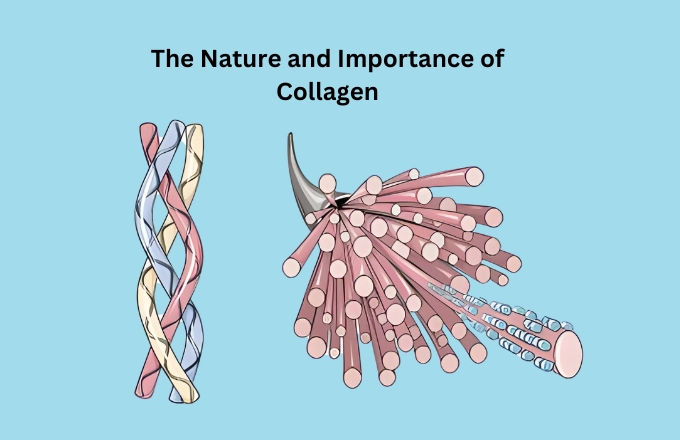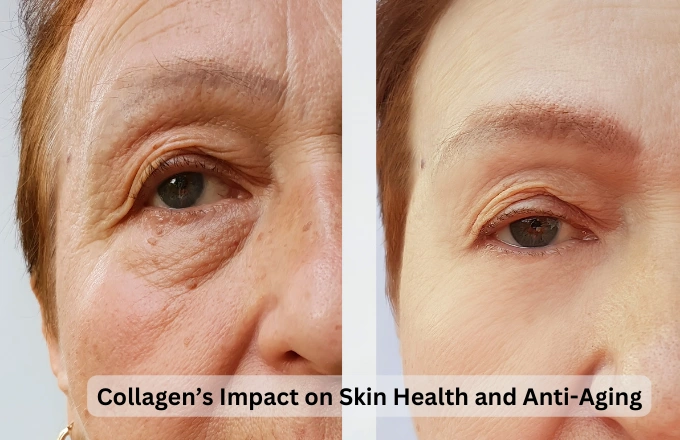What is Collagen: The Essential Protein Powering Beauty and Health
Collagen is more than just a buzzword in the beauty and wellness industry; it is a fundamental element that is woven into the very fabric of our biology. This protein is pivotal for maintaining the structural integrity of our skin, bones, and connective tissues. It’s not only a cornerstone of health but also a beacon of youthful vitality and longevity.
Understanding Collagen and Its Importance
Collagen is the most abundant protein in the human body, making up about a third of our total protein composition. It forms a scaffold to provide strength and structure, supporting everything from skin elasticity to joint functionality. Over time, our body’s natural production of collagen diminishes, leading to common signs of aging such as wrinkles, sagging skin, and joint pain. At Institute of Regenerative Medicine, we are committed to provide state of the art methods to restore collagen in human body to restore health life balance. We also induce stem cell therapy for the heathy organs and tissues in many health conditions.

Types of Collagen and Their Unique Benefits
There are at least 16 types of collagen, but the majority of the benefits are attributed to types I, II, and III. Type I collagen is predominantly associated with skin health, providing the matrix for firm, supple skin. Type II collagen is crucial for joint health, helping to cushion and maintain joint flexibility. Type III supports the structure of muscles, organs, and arteries.
The Power of Hydrolyzed Collagen
Hydrolyzed collagen, also known as collagen peptides, is collagen that has been broken down into smaller, easily digestible amino acids. This form of collagen is particularly effective for absorption and utilization by the body, making it a preferred choice for supplements.
Collagen Sources: From Traditional to Sustainable Options
While bovine and marine collagen are the most common sources, there is a growing interest in sustainable and allergen-free sources like vegan collagen. Each source offers distinct benefits, tailored to various health needs and ethical preferences.
The Nature and Importance of Collagen
Understanding Collagen and Its Vital Functions
Collagen, a protein predominantly found in connective tissues, including skin, bones, and ligaments, is the most abundant protein in mammals. Acting as the scaffolding for our bodies, it provides structure, strength, and elasticity. This structural protein is what helps maintain the skin’s youthful glow and plays a critical role in joint health.
Sources of Collagen: Diversity for Dietary Needs
While the body naturally produces collagen, the rate of synthesis decreases with age. This has led to the popularity of various collagen supplements derived from sources such as bovine (cow), marine (fish), and even plant-based alternatives. Each source offers unique benefits, with marine collagen being highly prized for its bioavailability and rapid absorption.


Health Benefits: From Skin to Bones
Collagen’s Impact on Skin Health and Anti-Aging
One of the most well-known benefits of collagen is its ability to improve skin elasticity and reduce wrinkles. It acts as a natural rejuvenator, often incorporated in top-tier skincare products and treatments. Collagen supplements are also widely used to slow the aging process, promoting a more vibrant and youthful complexion.
Joint Health and Mobility Enhancements
In addition to skin benefits, collagen is essential for joint health. It helps to rebuild cartilage and restore flexibility, reducing pain and stiffness often associated with aging and arthritis. Regular intake of collagen can significantly improve joint function and comfort, making it a favorite supplement among athletes and the elderly.
Collagen in Medical and Cosmetic Applications
Revolutionizing Cosmetic Surgery with Collagen
In the field of cosmetic surgery, collagen’s ability to promote rapid healing and its natural integration into body tissues makes it a preferred choice for surgical enhancements and reconstructions. From facial creams to injectable fillers, collagen’s applications are vast and varied.
Dietary Supplements: Boosting Collagen Naturally
The market is teeming with dietary supplements that promise to boost collagen levels. Whether in the form of powders, pills, or drinks, these supplements aim to support the body’s collagen synthesis, offering a convenient and effective way to enhance natural collagen production.
Collagen Supplements: A Gateway to Enhanced Well-being
Incorporating collagen supplements into one’s diet is touted as a transformative approach to enhance skin radiance, improve joint health, and boost overall vitality. These supplements come in various forms, including powders, capsules, and drinks, each designed to fit seamlessly into daily routines.
Collagen in Skin Care: Topical Applications
Beyond dietary supplements, collagen is a star ingredient in topical beauty products. Collagen creams and serums are engineered to deliver this essential protein directly to the skin, aiming to reduce signs of aging and improve skin texture.
Scientific Backing: Collagen’s Role in Health and Beauty
Recent studies underscore the significance of collagen in promoting skin elasticity and moisture. Research also highlights its efficacy in supporting joint health, particularly in individuals with osteoarthritis.
Collagen and the Future: Innovations and Trends
The collagen market continues to evolve, with innovations such as collagen boosters and bioactive collagen peptides leading the way. These developments promise to enhance the effectiveness of traditional collagen products, making them more appealing to health-conscious consumers.
Generating Stem Cells: Advancing Medical Science into the Future
Conclusion
Collagen’s role in fostering health and beauty is undeniable. As science advances and more discoveries are made, the potential of collagen continues to expand, promising a future where collagen remains at the forefront of health and wellness solutions.



